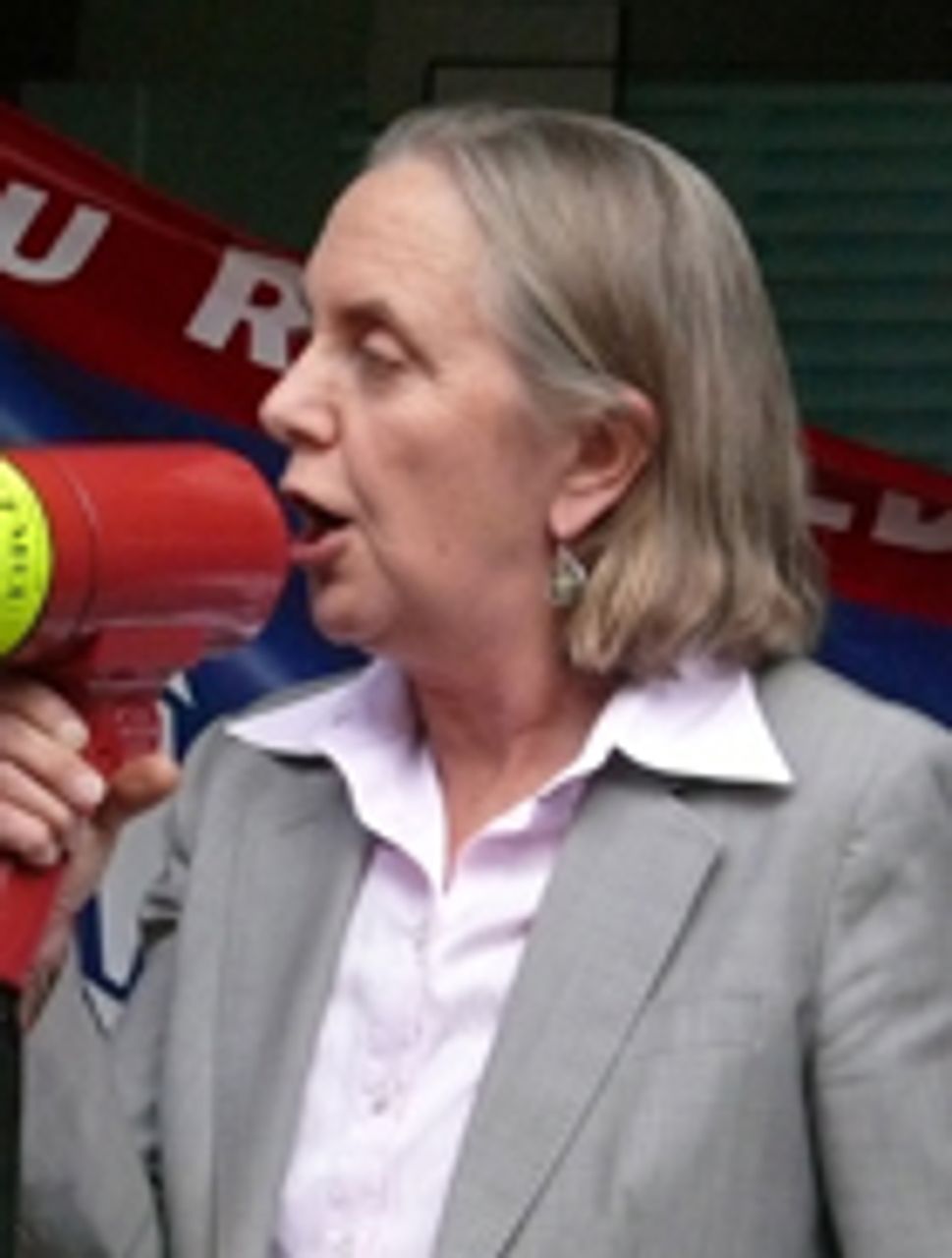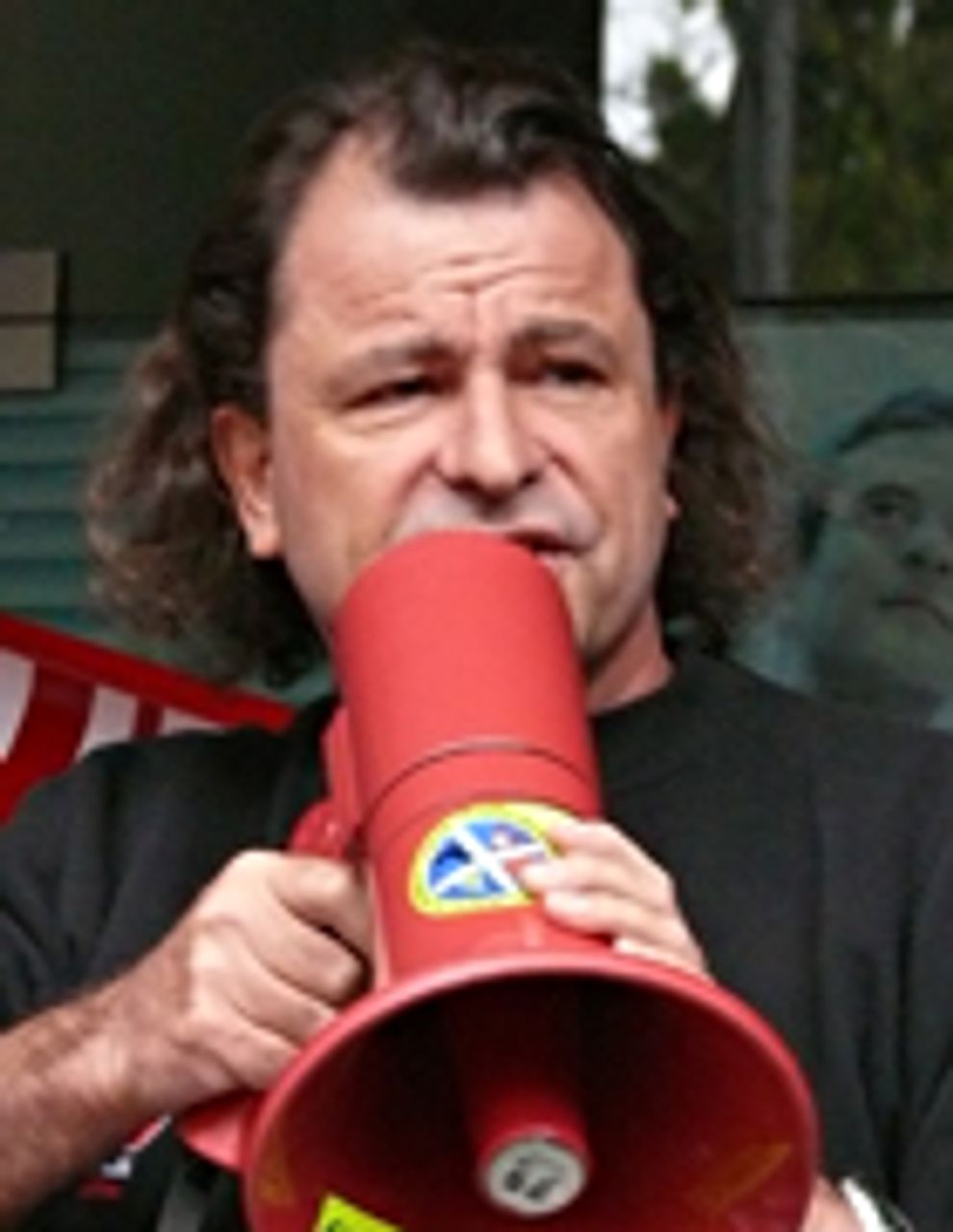The Adelaide Magistrates Court heard final summations on Monday in the final day of the trial of victimised construction worker Ark Tribe. He faces up to six months in prison for the “crime” of refusing to be interrogated by the Australian Building and Construction Commission (ABCC) over an allegedly unlawful strike. Magistrate David Whittle will deliver the verdict on November 3.
The most striking feature of Tribe’s final day in court was the decision by the trade unions to wind back their previous limited protests in defence of the worker. There is widespread hostility among building workers toward the ABCC, the anti-democratic industry watchdog first established by the former Howard government and since maintained by the Labor government. Several large rallies in the last two years have been staged against the ABCC and in opposition to Tribe’s prosecution—but the unions are now attempting to wind back all protest actions. The unions are promoting the illusion that the rights of construction workers can be achieved through the Greens-backed minority Labor government of Prime Minister Julia Gillard.
Ark Tribe was initially charged after participating in a stop-work meeting held on May 30, 2008 at a building site at Adelaide’s Flinders University. The workers discussed serious and persistent safety issues and voted to strike for the rest of the day. The building company, Hindmarsh Constructions, called in the police and locked workers out the next day. The ABCC then stepped in and demanded that Tribe and others divulge information about their co-workers. The agency has extraordinary powers, and workers brought before the ABCC have no right to remain silent, a democratic right protected in even the most serious criminal investigations.
At Monday’s hearing, Tribe’s lawyer Michael Abbott QC reiterated the defence’s argument that the charges should be thrown out because they were improperly laid, as only ABCC Commissioner John Lloyd or an authorised delegate can bring charges against workers. For its part, the prosecution has insisted that “anyone” can charge workers under the relevant legislation.
The Construction, Forestry, Mining and Energy Union (CFMEU) and other industry unions have long postured as opponents of the ABCC, but they have collaborated with the agency at every step. The unions have agreed to pay millions of dollars in fines for a series of allegedly unlawful industrial actions taken by workers in defence of jobs, wages, and safe working conditions. In Ark Tribe’s Flinders University stop-work investigation, the CFMEU forked out $20,000 as it left the worker to take on the ABCC by himself.
Throughout the campaign against the ABCC, the unions’ aim has been to work with the Labor government as it drafted legislation formally abolishing the organisation and transferring its powers to a new body within the Fair Work Australia industrial relations tribunal. The CFMEU wants to enshrine its role as the industrial police force—enforcing productivity speedups, suppressing wages, and maintaining control over what has long been one of the most militant sections of the Australian working class—by eliminating those ABCC powers which cut across its operations.
In the construction industry as across the economy, the unions are offering their services to employers and to the Gillard government which has been put on notice by big business and international financial markets to deliver sweeping austerity measures. This program will include cuts to basic social services and further moves to drive down workers’ wages and conditions in order to make Australian companies more “competitive” with their overseas counterparts.
During the recent federal election campaign, the CFMEU and Electrical Trades Union (ETU) backed the Labor government’s re-election while also supporting the Greens’ efforts to secure the balance of power in the Senate. The CFMEU donated $50,000 to the Greens’ Senate campaign in Victoria, while the ETU donated $325,000. The Greens are committed to the profit system, fiscal responsibility and parliamentary “stability”—but the unions, highly conscious of workers’ anger and hostility toward Labor, promoted them as a “progressive” alternative.
The election delivered what the unions had wanted—a Labor government, backed by the Greens who now effectively control the Senate. The CFMEU is preparing for behind-closed-doors negotiations with Labor and Greens MPs as legislation is drafted transferring the ABCC’s powers to Fair Work Australia. The unions see no need for mass rallies as part of these parliamentary manoeuvres—which is why they suppressed construction workers’ action in defence of Ark Tribe on Monday.
Small protests were staged in Adelaide, outside the court, and in Sydney, where about 100 people, almost all union bureaucrats and selected delegates, gathered for an hour outside the ABCC state office. In Adelaide, the Australian reported that CFMEU construction division national secretary Dave Noonan “said the Greens opposed the commission and its coercive powers” and could convince the government to abolish them.
 Lee Rhiannon
Lee RhiannonAt the Sydney rally, Greens Senator-elect Lee Rhiannon declared that the Greens would “[work] with Labor to improve working conditions, improve safety on the job, to return to the days when … the right to strike was enshrined in law”. She said nothing about Labor’s Fair Work regime, which has enshrined all the draconian anti-strike provisions of the Howard government’s hated WorkChoices legislation. Rhiannon claimed the ABCC had been introduced by the Howard government with the aim of “crushing” the CFMEU but stressed that the newly elected Senate would be more “friendly”.
Mark Lennon, secretary of Unions New South Wales, told the Sydney rally that the ABCC had driven down “productivity in the building industry” by creating an environment where there was no “trust”. Lennon boasted that in preparations for the 2000 Olympics, prior to the introduction of the commission, construction projects were delivered “on budget and on time”—a reference to the unions’ key role in preventing industrial action.
Jeff Lawrence, secretary of the Australian Council of Trade Unions, told the rally that the unions would “work with [the] government and the other players in the parliament …to restore justice for workers”.
 Mal Tulloch
Mal TullochMal Tulloch, assistant secretary of the CFMEU’s NSW branch, declared that the union would “fight to every last member of ours until the ABCC has been abolished”. He added, however, that the union’s “fight” consisted solely in calling on “the federal government, and in particular the prime minister, to put an end to these laws forever”.
While the CFMEU has made vague promises to hold a national strike if Tribe is jailed, Tulloch made no mention of this in his speech. Asked after the rally, what the union would do if Tribe was convicted, Tulloch told the World Socialist Web Site: “If Ark Tribe goes to jail we’ll be pushing our membership for an immediate stoppage of the construction industry across the country and then we will, obviously through the peak union bodies, call upon other unions to support our campaign.”
This is nothing but demagogy. The unions have taken no serious action in defence of Tribe when he was first charged and then prosecuted—and no plan has been in put in place for a national strike in the event that the worker is imprisoned. If Tribe is convicted, the unions will seek to subordinate any protests or industrial action to their manoeuvres with the Greens and the Gillard government.
Subscribe to the IWA-RFC Newsletter
Get email updates on workers’ struggles and a global perspective from the International Workers Alliance of Rank-and-File Committees.
